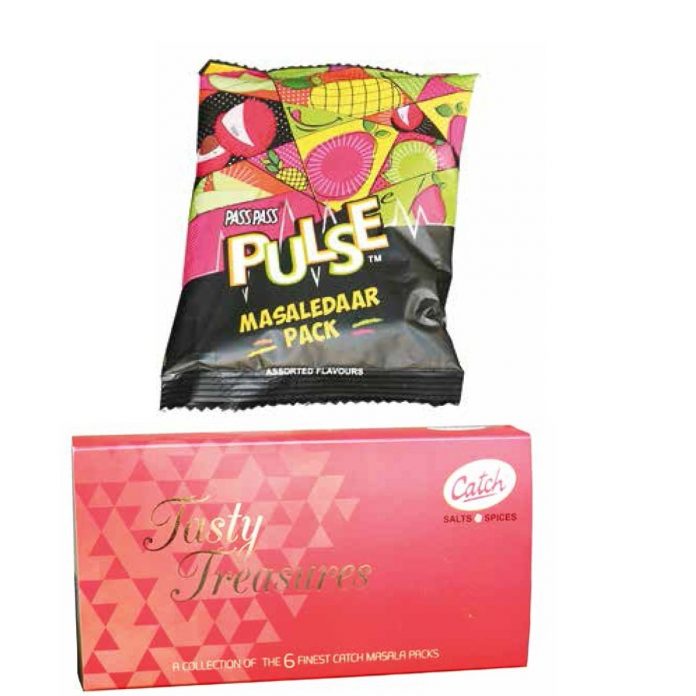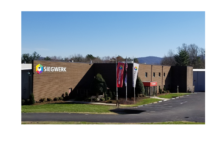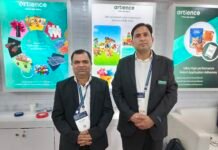The DS Group (Dharampal Satyapal group) organized a full-day conference on sustainable packaging at their magnificent headquarters build- ing in Noida. Widely known as DS, the group is a leading brand owner in tobacco-based products that has diversified to the food industry with its processing and packaging capabilities.
There have been several good conferences and platforms in North India in the past year talking about sustainability in the light of the central government’s waste management rules of 2016 and 2018 concerning the use of plastics and the need for Extended User Responsibility both in solid waste collection and recycling. Significantly, the Sustainable Packaging – A way forward conference began with CK Sharma, the business head of the DS Group, outlining the need for brand owners to address issues of packaging waste and the environment proactively. Sharma said, “This is one problem where no politician is thinking beyond 4 or 5 years. It is not one of those corporate problems at which one can merely throw money to solve it. Sensitizing his team as well as the suppliers present, he cautioned that the issues are complex, requiring multiple solutions and concerted effort by the community, adding forthrightly, “This is not a business development conference.”

Nevertheless, the event ably organized by DS Group’s vice-president for packaging Sanjay Gupta was not merely academic. It went into detailed sustainable alterative materials, structures, and solutions for the DS Group’s various products that use a combination of metal, glass, rigid plastic, flexible packaging, and monocartons. Even the expert from IIT Delhi Jayant Jain had an interesting proposition – thin stainless steel as an alternative to aluminum packaging. Though it would seem academic to start with and expensive, converters of metal packaging would know that stainless steel is 46% lighter than it was 30 years ago. Already chromium coated, stainless steel is not implausible since 40% of tinplate used in India for packaging is imported even now. It would undoubtedly encourage reusable packaging.

Presentations by Hutahmaki and Constantia dwelled on the recyclability of their new structures that mainly rely on PE. Constantia said that its Ecolam mono-material PE structures have three levels of certified barrier properties. It has been testing these for lateral recyclability several times into equivalent use products.
Uflex presented its scientific perspective, which means that in the real world, both collected and uncollected waste have to be dealt with. The company’s Pepzyme polymer eating bacteria solution for biodegradable films that can degrade in soil most likely within 15 months is a solution that has already had a trial run for a 400-gram snack pack. Biodegradable films for flexible packaging must provide equivalent performance in terms of printability and machine runnability. Yet they must degrade at rates that satisfy the EN 1332 and IS 7088 stand- ards for disintegration.
Michelman’s presentation outlined the success of its incubator in Mumbai, which has helped converters and brand owners come up with mono-material film structures using its water-based coatings. There is also the real and practical possibility of using its water-based coatings to enhance the moisture and oxygen barrier properties of paper-based materials that could be easily recycled or biodegrade.
The most interesting presentation was by Jindal Polymers, India’s largest film manufacturer, who said that its must-have criteria for recyclability are using laminates based on the same family structure, or same polymer structures and having transparency. Jindal presented the possibility of dramatically transforming the entire range of flexible laminate structures toward sustainability and recyclability with a combination of PE, CPP, and BOPP structures appropriate to their use subsets. Apart from OTR and MTVR, the requirements are for high-speed machine runnability, printable, and sealable films or structures that Jindal says can be produced using various barrier materials and both transparent and AlOx coatings.
Although the content of this conference bears revisiting and at length, the DS vote of thanks was brief. It called for both pragmatism and the need for advocacy.












A real time useful seminar by packaging materials and converters showing the Wayforward for sustainability & recyclability,without compromising on the materials like food etc .to be packed.
Bodi kampani